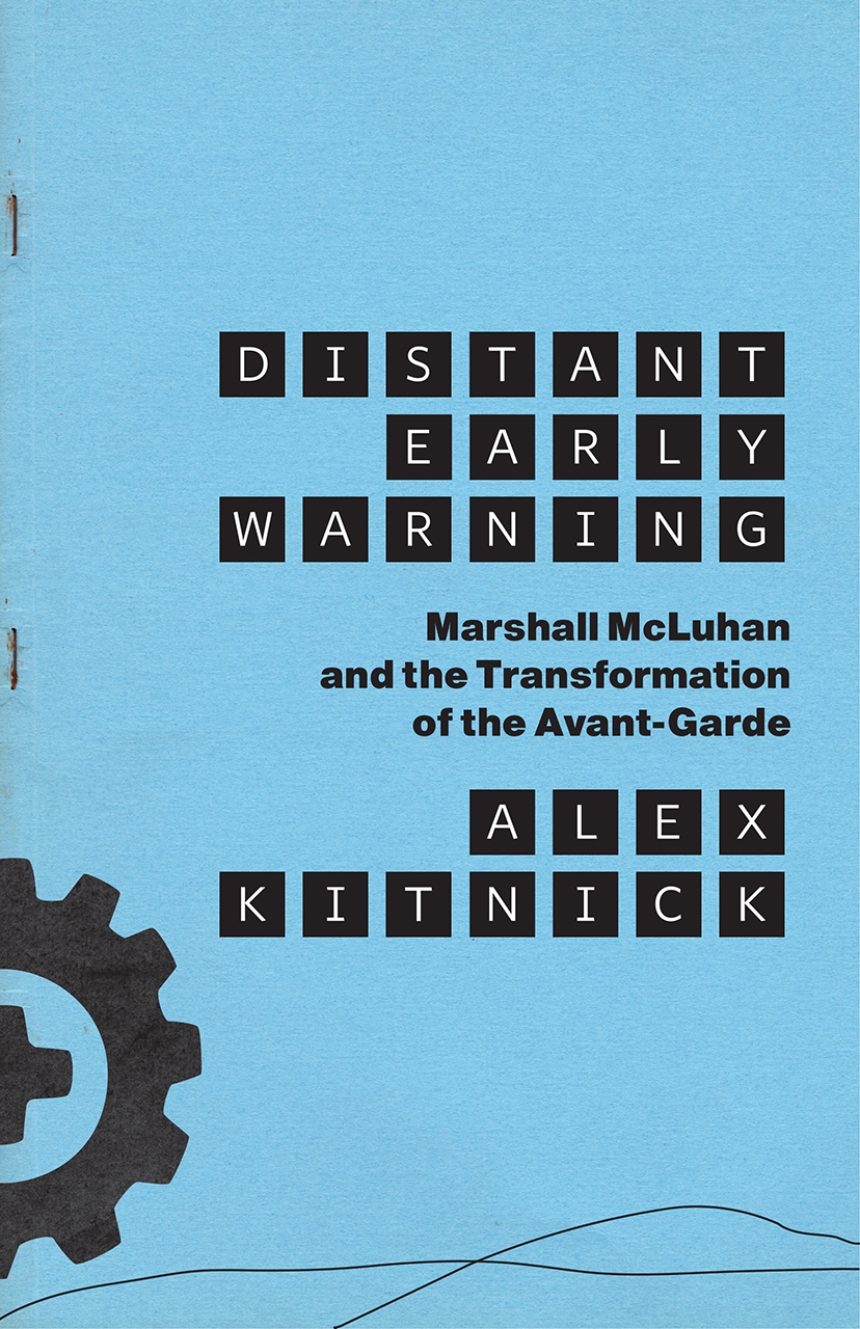Distant Early Warning
Marshall McLuhan and the Transformation of the Avant-Garde
9780226753454
9780226753317
9780226753591
Distant Early Warning
Marshall McLuhan and the Transformation of the Avant-Garde
Marshall McLuhan (1911–1980) is best known as a media theorist—many consider him the founder of media studies—but he was also an important theorist of art. Though a near-household name for decades due to magazine interviews and TV specials, McLuhan remains an underappreciated yet fascinating figure in art history. His connections with the art of his own time were largely unexplored, until now. In Distant Early Warning, art historian Alex Kitnick delves into these rich connections and argues both that McLuhan was influenced by art and artists and, more surprisingly, that McLuhan’s work directly influenced the art and artists of his time.
Kitnick builds the story of McLuhan’s entanglement with artists by carefully drawing out the connections among McLuhan, his theories, and the artists themselves. The story is packed with big names: Marcel Duchamp, Niki de Saint Phalle, Jasper Johns, Andy Warhol, Nam June Paik, and others. Kitnick masterfully weaves this history with McLuhan’s own words and his provocative ideas about what art is and what artists should do, revealing McLuhan’s influence on the avant-garde through the confluence of art and theory. The illuminating result sheds light on new aspects of McLuhan, showing him not just as a theorist, or an influencer, but as a richly multifaceted figure who, among his many other accolades, affected multiple generations of artists and their works. The book finishes with Kitnick overlaying McLuhan’s ethos onto the state of contemporary and post-internet art. This final channeling of McLuhan is a swift and beautiful analysis, with a personal touch, of art’s recent transgressions and what its future may hold.
Kitnick builds the story of McLuhan’s entanglement with artists by carefully drawing out the connections among McLuhan, his theories, and the artists themselves. The story is packed with big names: Marcel Duchamp, Niki de Saint Phalle, Jasper Johns, Andy Warhol, Nam June Paik, and others. Kitnick masterfully weaves this history with McLuhan’s own words and his provocative ideas about what art is and what artists should do, revealing McLuhan’s influence on the avant-garde through the confluence of art and theory. The illuminating result sheds light on new aspects of McLuhan, showing him not just as a theorist, or an influencer, but as a richly multifaceted figure who, among his many other accolades, affected multiple generations of artists and their works. The book finishes with Kitnick overlaying McLuhan’s ethos onto the state of contemporary and post-internet art. This final channeling of McLuhan is a swift and beautiful analysis, with a personal touch, of art’s recent transgressions and what its future may hold.
224 pages | 56 halftones | 5 1/2 x 8 1/2 | © 2021
Reviews
Table of Contents
Introduction
Chapter 1 The Age of Mechanical Production
Chapter 2 What It Means to Be Avant-Garde
Chapter 3 Lights On
Chapter 4 Electronic Opera
Chapter 5 Massage, ca. 1966
Chapter 6 Information Environment
Chapter 7 Culture Was His Business
Postscript: McLuhan’s Art Today
Acknowledgments
Notes
Bibliography
Index
Chapter 1 The Age of Mechanical Production
Chapter 2 What It Means to Be Avant-Garde
Chapter 3 Lights On
Chapter 4 Electronic Opera
Chapter 5 Massage, ca. 1966
Chapter 6 Information Environment
Chapter 7 Culture Was His Business
Postscript: McLuhan’s Art Today
Acknowledgments
Notes
Bibliography
Index
